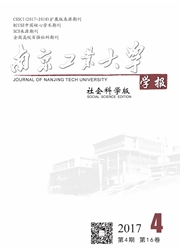

 中文摘要:
中文摘要:
针对由单个制造商和两个不同区域市场的零售商组成的供应链系统,分别就制造商对两个不同区域市场的零售商实行统一定价和差别定价两种定价策略下构建了纳入零售商公平偏好行为的两级供应链Stackelberg博弈模型,给出了不同情况下供应链均衡策略,分析了零售商公平偏好行为对不同情况下供应链均衡策略、参与者的利润以及供应链系统运作效率的影响。结果表明,零售商公平偏好行为对制造商的批发价格和利润具有负向影响、对零售商的利润具有正向影响,而对零售商的零售价格和供应链运作效率没有影响。
 英文摘要:
英文摘要:
The price strategy of two-stage supply chain which consists of one manufacturer and two retailers from two different regional markets for considering fairness preference was studied, and two different Stackelberg game models were constructed under two different situations in which the manufacturer uses differential pricing or uni- form pricing for two different regional retailers. Based on the different models, the paper examined the supply chain partners' strategies and analyzed the effect of retailer's fairness preference on the strategies, profit and the operational efficiency of supply chains. Results show that retailer's fairness preference has negative influence on the wholesale price and the profit of manufacturer and has positive influence on the profit of retailer, and has no effect on the retail price and the operational efficiency.
 同期刊论文项目
同期刊论文项目
 同项目期刊论文
同项目期刊论文
 期刊信息
期刊信息
